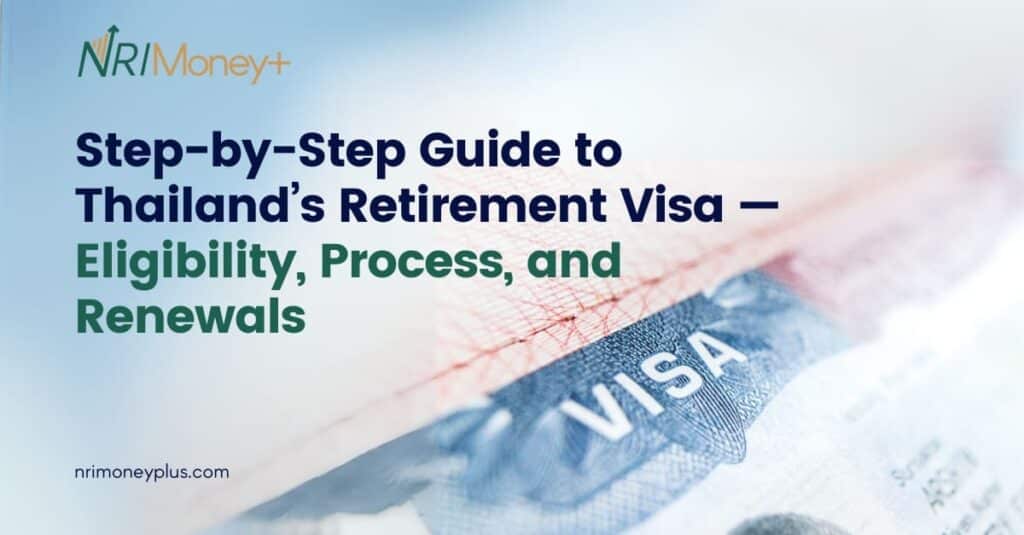If you’re considering retiring to Thailand, understanding the retirement visa options and their requirements is crucial. Thailand offers a special visa designed for foreigners aged 50 and above, allowing them to live in the country long-term without the hassle of frequent renewals or tourist visa runs.
Let’s dive into the details so you can plan your move with confidence.
What Is Thailand’s Retirement Visa?
Known as the Non-Immigrant O or O-A Visa, the retirement visa allows eligible foreigners aged 50+ to live in Thailand for an extended period. It’s valid for 1 year and can be renewed annually.
There are two common types:
- Non-Immigrant O Visa: Valid for 90 days initially, requires extension in Thailand.
- Non-Immigrant O-A Visa: Issued for 1 year directly from Thai consulates, with simpler renewal inside Thailand.
Who Is Eligible?
To qualify for a retirement visa, you must meet the following basic criteria:
- Age: 50 years or older at the time of application
- Financial Requirements: You must meet one of these financial criteria:
- Have at least THB 800,000 (approx. ₹18–20 lakh) in a Thai bank account for 2 months before applying or for 3 months if renewing
- OR a monthly income or pension of at least THB 65,000 (approx. ₹1.5 lakh)
- OR a combination of the two (savings + income) that totals THB 800,000 annually
- Health Insurance: Some visa types require proof of valid health insurance covering at least 400,000 THB for inpatient and 40,000 THB for outpatient care
- No Criminal Record: Police clearance certificate may be required
- Proof of Accommodation: Rental contract or property ownership documents
Application Process: Step-by-Step
- Gather Documents: Passport, recent photographs, bank statements, income proof, health insurance, accommodation proof, police clearance (if needed).
- Apply at Thai Consulate: Submit documents and application either in India or your country of residence.
- Pay Visa Fees: Typically between ₹4,000 and ₹6,000, depending on the consulate.
- Travel to Thailand: Receive initial visa (usually 90 days for Non-Immigrant O or 1 year for O-A).
- Extension in Thailand: For Non-Immigrant O, apply for 1-year extension at Immigration office within Thailand.
- Annual Renewal: Renew visa yearly by submitting updated documents and proof of funds.
Important Rules to Remember
- 90-Day Reporting: You must report your address to Thai immigration every 90 days.
- Stay Limits: Don’t overstay your visa; penalties apply.
- Permanent Residency: Retirement visa holders are not automatically eligible for permanent residency, which has a more complex process involving language tests and long-term residence.
Tips for a Smooth Application
- Open a Thai bank account early and maintain the required balance.
- Keep income and savings documents well-organized and translated if needed.
- Consider consulting a visa agent or legal expert for complex cases.
- Ensure health insurance meets Thai visa requirements to avoid rejection.
- Plan ahead — visa processing times can vary.
Is Permanent Residency Necessary?
Most retirees prefer the retirement visa because permanent residency in Thailand is difficult and costly to obtain. It requires living in Thailand for several years, proving employment or business ownership, passing language tests, and a long application process.
For retirees, the retirement visa offers a simpler, flexible path to enjoy long-term residence.
What’s Next?
In the next post, we’ll share practical tips for Indian retirees planning their move — from healthcare and accommodation to managing remote work and staying connected with family. Stay tuned!

Donald G. is the Principal Consultant at NRI Money+. He specialises in creating personalised financial plans for NRIs (Non-Resident Indians) and HNI (High Net-worth Individuals).



